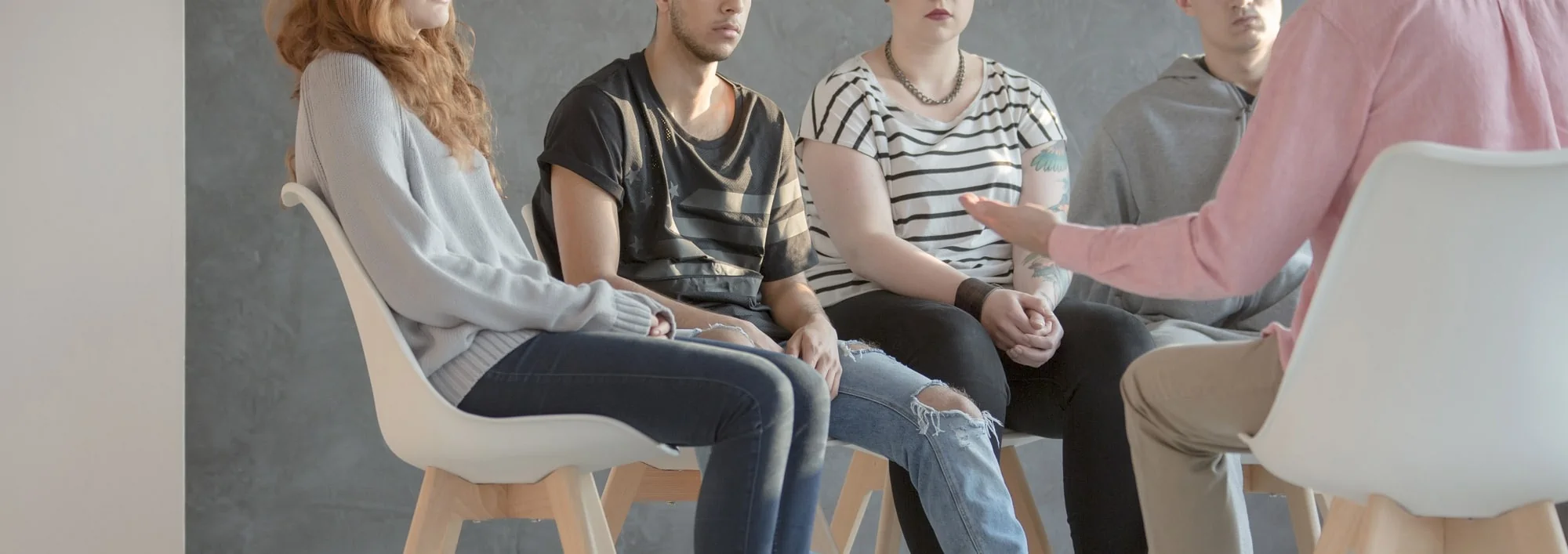Outpatient Alcohol Rehab San Diego, CA

Alcohol is still the most widely abused substance that people admit to rehab for. Treatment for alcohol use disorder may involve a detoxification and a period of residential rehabilitation before you begin our outpatient treatment program. Everybody’s needs are different depending on various factors such as their personal medical history, and the level of acuity of their current pattern of use.
Recover from alcohol addiction through our personalized treatment at our outpatient alcohol rehab in San Diego. Get help, call 619-452-1200.
First Steps: Do I Need Treatment for My Drinking?
There is absolutely no downside to talking to a drug counselor, or your doctor, about your drinking patterns and if clinical intervention is necessary.
The counselor or doctor will likely ask you several questions related to your drinking habits. In some cases, your doctor may want to perform a physical evaluation or run tests in order to check for damage to your organs. There are many physical signs that indicate complications of alcohol use.
You may be asked to complete a psychological evaluation. This evaluation includes questions about your symptoms, thoughts, feelings and behavior patterns. You may be asked to complete a questionnaire to help answer these questions.
You may be referred to twelve-step programs, and alcohol counselor, or, if the problem has progressed far enough, inpatient or outpatient treatment.
Signs of Alcohol Use Disorder (AUD)
Alcoholism takes months and sometimes years to develop. It can happen to anyone, from teenagers to elderly adults. Family members should know what to look for if they are concerned about the alcohol use of their loved one.
Here are Some Symptoms of Alcohol Abuse:
- Blackouts or short-term memory loss
- Poor coordination
- Impaired thinking
- Extreme mood swings/irritability
- Slurred speech
- Defensiveness and dishonesty about drinking
- Failure to follow through on work/family obligations
- Isolation and secrecy
Alcohol Detoxification in San Diego
In the case that rehabilitation is recommended, an alcohol detoxification is often required to safely adjust the body to the withdrawal of alcohol. Medical supervision is highly recommended for alcohol detoxification, which can be fatal if the physical dependence is acute enough.
Detoxification from alcohol generally takes two to seven days. Many potential patients at our rehab to dread the detoxification process, which can be scary. However, the process has become more and more comfortable in recent years due to medication assisted treatment (MAT). You may be given sedating medications to prevent withdrawal symptoms, and throughout your first few months (or longer), you may be prescribed medication that reduces cravings, like Vivitrol and naltrexone.
Outpatient Treatment For Alcohol Use Disorder (AUD)
While relapse is not uncommon in early recovery, our team’s main treatment goal is to help you completely stop the use of alcohol in order to improve the quality of your life.
First, you will establish a treatment plan with our alcohol treatment specialists. It may include goal setting, behavior change techniques, use of self-help manuals, counseling and participation in 12 step meetings.
Psychological Counseling for an Alcohol Use Disorder
Counseling and therapy for groups and individuals help you better understand your problem with alcohol and support recovery from the psychological aspects of alcohol use. You may benefit from couples or family therapy, as family support can be an important part of the recovery process. Some of the goals of our treatment team include:
- Addressing psychological problems. Alcohol use disorder commonly occurs along with other mental health disorders. If you have depression, anxiety or another mental health condition, you may need talk therapy (psychotherapy), medications or other treatment.
- Spiritual practice. People who are involved with some type of regular spiritual practice may find it easier to maintain recovery from alcohol use disorder or other addictions. For many people, gaining greater insight into their spiritual side is a key element in recovery.
- 12-Step Programs and other continuing support. Aftercare programs and support groups help people recovering from alcohol use disorder to stop drinking, manage relapses and cope with necessary lifestyle changes. This may include medical or psychological care or attending a support group.
Changing Your Habits in Sobriety
With the help of individual and group counseling, you will be encouraged to takes steps to improve your home life and social situation in order that they support and not endanger your sobriety. You will be coached how to :
- Manage stress more effectively through the use of mindfulness
- Make it clear to your friends and family that you're not drinking alcohol
- Develop a support system of friends and family who can support your recovery
- Distance yourself from friends and social situations that impair your recovery
- Develop healthy habits (sleeping physical exercise, and eating healthy)
Medication Assisted Treatment for Alcoholism
Naltrexone, a drug that blocks the good feelings alcohol causes, may prevent heavy drinking and reduce the urge to drink. Acamprosate may help you combat alcohol cravings once you stop drinking.
Vivitrol is the brand name for an injectable version of the drug naltrexone. It is injected once a month by a health care professional. Although similar medication can be taken in pill form, the injectable version of the drug may be easier for people recovering from alcohol use disorder to use consistently.
What Therapeutic Processes are Done in Outpatient Reha
The therapy and counseling you will take part in will be uplifting.. Therapy will help you learn about the triggers that made you drink and create a plan to avoid relapse.
We utilized evidence-based and holistic therapies. Using a multi-faceted approach helps the person recover. Some examples of types of treatment include:
- Mindfulness
- Dialectic Behavioral Therapy (DBT)
- Cognitive Behavioral Therapy (CBT)
- Introduction to 12-Step Programs, SMART Recovery and other community-based recovery programs
We also have facilitators who we partner with who can offer even more of a variety of processes, including:
- Individual therapy
- Music therapy
- Hypnotherapy
- Aquatic therapy
- Body therapy
- Yoga
You will benefit from participating in a personalized blend of therapeutic activities which will be designed just for you.
Contact the Experts in Treating Drug and Alcohol Addiction in San Diego
Located in San Diego, Confidential Recovery's outpatient rehab center provides convenient access—both weekdays and weeknights— to world-class alcohol and drug addiction treatment.
Programs at our outpatient addiction treatment center in San Diego are made up by the most effective and 'state-of-the-art' evidence-based practices. Because Confidential Recovery has reasonable rates for 'out of pocket' patients and also accepts many health insurance plans, our expert care and clinical services are within reach for many people who need addiction counseling and related alcohol and drug rehab services.
Confidential Recovery is a great option for continued treatment and support after discharging from a residential addiction program. Confidential Recovery can also a perfect beginning for those clients who are “higher-functioning” and don’t wish to do residential treatment, are trying sober living, private therapy, working, or have parenting responsibilities.
If you have questions about the process of getting help for a substance use disorder, call us at (619) 452–1200 to discuss the matter privately with our intake counselors


